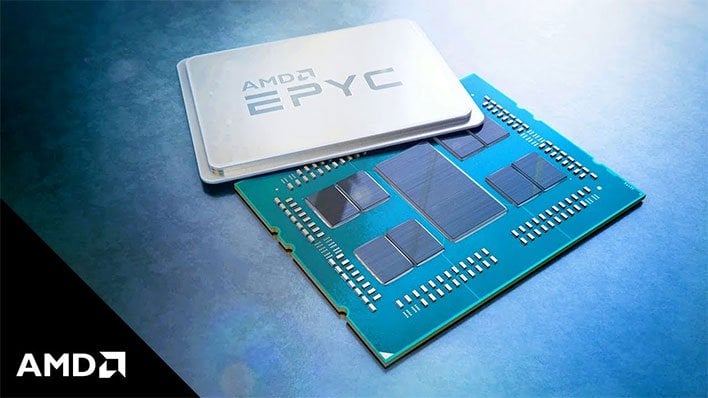AMD Server CPU Market Share Could Crack 10 Percent In 2020 Thanks To EPYC 7002

A new report coming out of Taiwan is suggesting that orders for EPYC 7002 processor have been so strong thus far that AMD could see a dramatic upswing in market share during 2020 as more vendors adopt the processors. If market analysts are correct, AMD could be looking at a 10 percent share of the server market by the end of 2020.

AMD's share of the server market was sitting at 0.8 percent in Q4 2017, and increased to 1.6 percent in Q4 2019. By Q4 2018, its unit share had increased to 3.2 percent according to Mercury Research. According to DigiTimes, AMD is currently sitting around a 5 percent share of the server market.
EPYC 7001 was just a warmup of sorts for AMD, but EPYC 7002 has proven itself to be a blockbuster chip for the company with respect to performance, efficiency, and value. AMD has scored some big design wins in recent months, showing increasing confidence in corporations to adopt its solutions over those from perennial frontrunner Intel.

Back in August, Twitter championed the new EPYC 7002 processors, citing the ability to "scale out our compute clusters with more cores in less space using less power, which translates to a 25% lower TCO". Google has adopted EPYC 7002 processors for its own internal data centers and has plans to make the hardware available to developers via the Google Cloud Compute Engine.
Dell has also shown confidence in these new Zen 2-based "Rome" processors, adopting them for a range of Dell EMC PowerEdge servers. Lenovo has also given EPYC 7002 some love with its ThinkSystem SR635 and SR655 single-socket server platforms.
In the end, it looks as though AMD is an enviable position to gobble up market share as Intel attempts to extend the life of its 14nm++ process node while at the same time transitioning to 10nm and eventually 7nm for its Core-X and Xeon processors. AMD is also turning up the heat (quite literally) with its range-topping EPYC 7H12, which is a 64-core/128-thread beast with a base clock of 2.6GHz, boost clock of 3.3GHz, 256MB of cache and a 280-watt TDP. Given its lofty TDP, however, AMD is recommending liquid cooling for servers using this chip.

